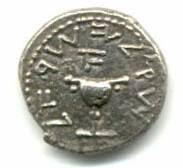As we remember the bravery of the American, Canadian, Britsh and other allied forces that participated in D-Day and the start of the liberation of Europe, there was an episode that has now been almost forgotten.
You see, the code words for D-Day started showing up in the British newspaper The Telegraph's crossword puzzles right before the invasion of Normandy was to take place.
Just prior to May 1944, the words Juno, Sword and Gold - names of the British and Canadian invasion beaches appeared in the Telegraph's crosswords.
Then on May 2 1944 a question appeared: "One of the U.S." the answer was Utah.
On May 22: "Red Indian on the Missouri" The answer: Omaha.
That's all of the invasion beaches.
On May 27: "... but some bigwig like this has stolen some of it at times." The answer: Overlord, the code-name for the entire invasion operation.
On May 30: "This bush is a centre of nursery revolutions."answer: Mulberry. Mulberry was the code-name for the artificial harbors to be used in the invasion.
On June 1, 1944 the clue: Britannia and he hold to the same thing. The answer: Neptune, which was the code-name for the naval portion of the action for D-Day.
This, as you might imagine, gave the British counter-intelligence service, MI-5, kittens.
There was an urgent investigation to see if the crossword was being used to tip-off the Germans and warn them of the invasion.
It turns out the compiler of the crossword puzzles, Leonard Dawe, headmaster of a school and crossword enthusiast, had come up with the words and after a through investigation MI-5 decided it had just been an interesting and complete coincidence and not espionage and the crossword panic faded into history.
It later turns out it wasn't quite as purely coincidental as all that.
Only later in 1984 was it learned that Dawe had been given the words by schoolchildren when he had asked them for some words to put in the puzzles. These schoolkids gave him the suggested words, the words which they had overheard then being discussed by American and British soldiers. At least two of these schoolchildren identified themselves later in 1984 and then in 1995 that they were the ones who gave Dawe some of the words to use in the puzzles.
The Telegraph: D-Day crosswords are still a few clues short of a solution

No comments:
Post a Comment